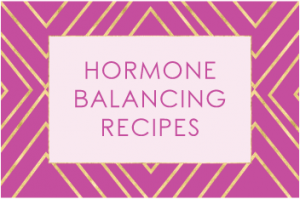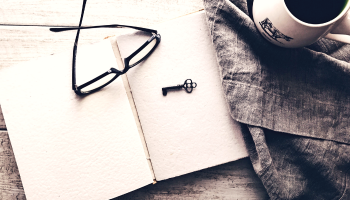So you want to incorporate more hormone balancing foods into your diet.
… but you’re tired after work and don’t have the energy to cook a healing meal.
Maybe cooking isn’t your thing. If it’s mid-week already and you haven’t even had a chance to sit down and make a plan, we hear you! When you have brain fog and you’re energy’s low, the gap between knowing what to do and taking action widens. Luckily, there is an easy way to increase the nutritional quality of your meals without modifying your cooking at all!
The answer: condiments.

1. Kelp Flakes or Sea Veggie Flakes
Dry seaweeds are crushed up into flakes that are the size of a dried herb like oregano. Sprinkle seaweed flakes onto your savoury food as an alternative (or as an addition) to a salt. If you currently season your dishes with a high quality pink Himalayan rock salt, you may not get enough iodine. Kelp is a whole-food source of iodine which is essential for breast and thyroid health.
Sea vegetables are naturally wild hormone balancing foods. This means they haven’t been hybridized like most vegetables available in the supermarket. Because they propagate themselves and survive in the wild, sea vegetables are extremely nutrient dense and high in minerals. They help support the nervous system, and if you consume them regularly you may find your tolerance to stress increases because of their calming effect.
Seaweed is a good source of vitamin-C, pantothenic acid, zinc and copper and an amazing source of vitamin-K, riboflavin, folate, calcium, iron, magnesium and manganese.
You can purchase the kelp or sea vegetable flakes at many health food stores.
Traditionally, condiments were developed for digestive support first, tasty flavor second.
Today, many condiments are toxic mimics of delicious home-made recipes. For example, relish and pickles used to be full of live ferments. Now these condiments are merely a blend of sugar and vinegar.

2. Fermented Vegetables and Sauerkraut
Pickles come in so many forms: cucumber, beets, carrots, tomatoes, beans, asparagus… you name it! Our ancestors reaped the benefits of fermented hormone balancing foods by consuming them with all their meals. It’s only in the last 50 years that we have abandoned ferments and lost touch with the friendly bacteria.
In general, fermented vegetables are beneficial for our overall health and also provide critical support for our digestion. For example, sauerkraut supports the liver with detoxification and it’s main role of processing hormones. The probiotics inherent in the fermented cabbage help you absorb your food and aid the natural digestion of meats.
One of our friends has the following recommendation:
“Eat equal portions meat and kraut for optimal digestion.”
Ferments are essential if you’re struggling with symptoms of adrenal fatigue. Fermented vegetables provide the body with bioavailable vitamin-C for your adrenal glands, liver support to efficiently process your hormones, while at the same time healing your gut.
In fact, it’s simple to make your own hormone balancing foods, you can check out a great easy recipe for ferments here. If you choose to purchase them, make sure you get unpasturized ferments, which are stored in the fridge section of the market.

3. Bone Broth
Bone broth is made by simmering animal bones over a period of hours to extract all the beneficial gelatin and nutrients that are stored in bones. It’s a powerful hormone balancing food! Add a cup of bone broth to your meals (use to make rice, quinoa or as a base for soup) or sip a cup of broth on the side.
The gelatin in a good bone broth supports gut health by repairing the gut lining, which can become compromised if you have adrenal fatigue. Poor gut health is a likely reason that you may be developing additional food sensitivities, allergies and increased inflammation. Including a daily cup of bone broth can help fix those aches and pains and give your body essential collagen to rebuild.
Naturally, we love the true, nutrient-dense bone broth recipes from Nourishing Traditions by Sally Fallon of the Weston A Price Foundation. There is a recipe for chicken, beef and fish broths/stocks at the end of this post here.






